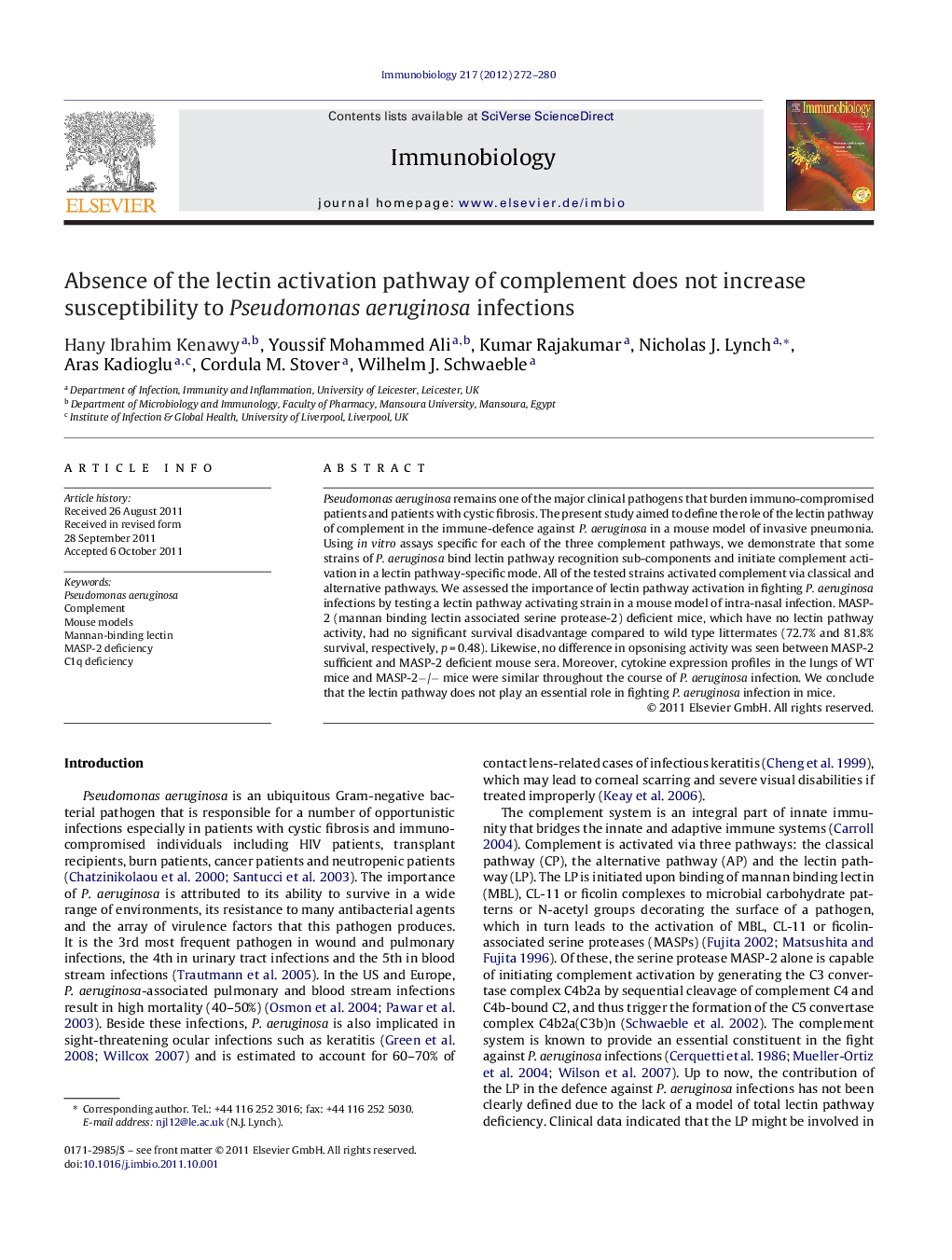| Article ID | Journal | Published Year | Pages | File Type |
|---|---|---|---|---|
| 10941103 | Immunobiology | 2012 | 9 Pages |
Abstract
Pseudomonas aeruginosa remains one of the major clinical pathogens that burden immuno-compromised patients and patients with cystic fibrosis. The present study aimed to define the role of the lectin pathway of complement in the immune-defence against P. aeruginosa in a mouse model of invasive pneumonia. Using in vitro assays specific for each of the three complement pathways, we demonstrate that some strains of P. aeruginosa bind lectin pathway recognition sub-components and initiate complement activation in a lectin pathway-specific mode. All of the tested strains activated complement via classical and alternative pathways. We assessed the importance of lectin pathway activation in fighting P. aeruginosa infections by testing a lectin pathway activating strain in a mouse model of intra-nasal infection. MASP-2 (mannan binding lectin associated serine protease-2) deficient mice, which have no lectin pathway activity, had no significant survival disadvantage compared to wild type littermates (72.7% and 81.8% survival, respectively, p = 0.48). Likewise, no difference in opsonising activity was seen between MASP-2 sufficient and MASP-2 deficient mouse sera. Moreover, cytokine expression profiles in the lungs of WT mice and MASP-2â/â mice were similar throughout the course of P. aeruginosa infection. We conclude that the lectin pathway does not play an essential role in fighting P. aeruginosa infection in mice.
Related Topics
Life Sciences
Biochemistry, Genetics and Molecular Biology
Cell Biology
Authors
Hany Ibrahim Kenawy, Youssif Mohammed Ali, Kumar Rajakumar, Nicholas J. Lynch, Aras Kadioglu, Cordula M. Stover, Wilhelm J. Schwaeble,
